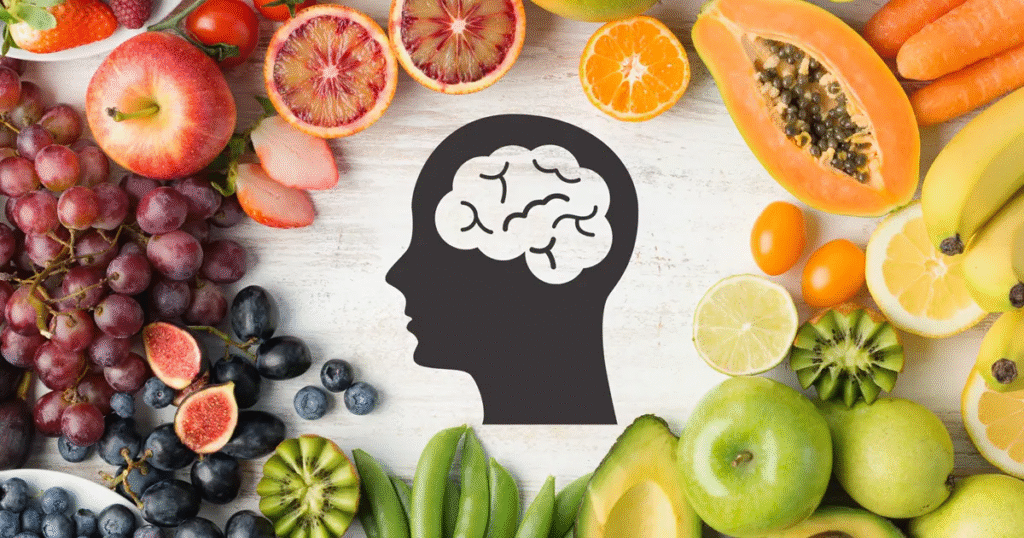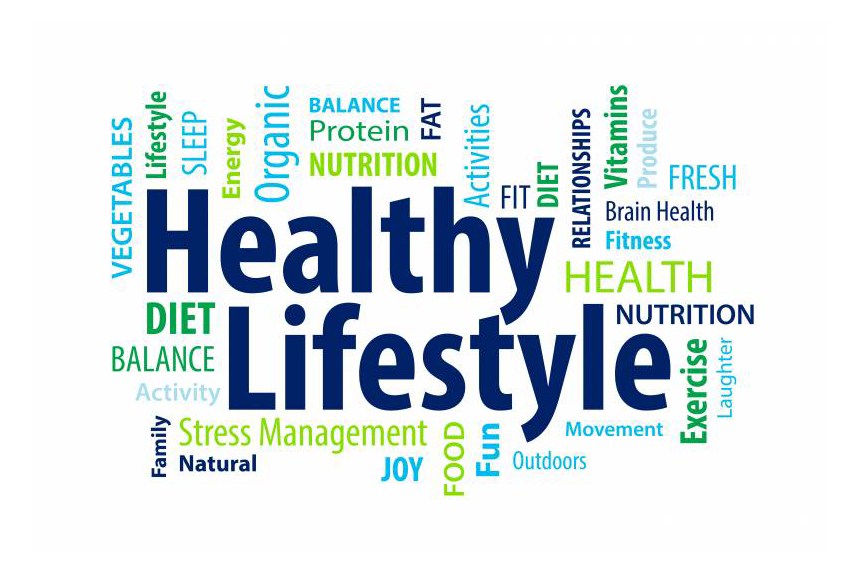When we talk about our health, one of the most powerful tools at our disposal is our nutrition and diet. The food we consume every day forms the foundation of how our bodies operate, recover, and defend themselves. Proper nutrition not only provide energy but also regulate vital bodily functions, affect mental health, support immune response, and prevent chronic diseases. Understanding the intricate relationship between nutrition and diet and overall wellbeing empowers us to make choices that optimize our health and longevity.
Key Takeaway
The quality of your nutrition directly shapes your overall wellbeing. Through consistent choices emphasizing whole, nutrient-rich foods and mindful eating habits, nutrition and diet provide the foundation for strong physical health, mental resilience, immune protection, and disease prevention. Embracing a healthful nutrition is a lifelong investment in your quality of life.
The Role of Nutrition and Diet in Physical Wellbeing

Macronutrients and Energy Supply
Nutrition and diet play a fundamental role in providing the energy required for all bodily functions. The three main macronutrients—carbohydrates, proteins, and fats—each serve unique and vital roles in maintaining physical wellbeing.
Carbohydrates are the body’s primary source of energy. Through your nutrition and diet, carbohydrates break down into glucose, which fuels muscles during physical activity and supports vital organs. Complex carbohydrates from whole grains, vegetables, and legumes provide sustained energy release, essential for endurance and daily functioning.
Proteins are crucial in nutrition for muscle repair, growth, and maintenance. They supply amino acids that build muscle tissue, enzymes, and hormones. Adequate protein intake supports recovery after exercise and prevents muscle loss, especially important for physically active individuals and aging populations.
Fats, often misunderstood, are indispensable components in nutrition. Healthy fats such as monounsaturated and polyunsaturated fats support hormone production, brain function, and cell membrane integrity. They also serve as a long-term energy source during prolonged physical exertion.
Micronutrients and Physical Function
Beyond macronutrients, micronutrients derived from nutrition and diet—such as vitamins and minerals—are essential for maintaining physical wellbeing. Calcium and vitamin D are critical for bone health, ensuring strength and reducing fracture risks.
Iron, obtained through nutrition and diet, is vital for oxygen transport via hemoglobin in the blood. Adequate iron levels improve muscle endurance and reduce fatigue. Magnesium supports muscle relaxation and energy production, playing a role in preventing cramps and supporting recovery.
Antioxidants like vitamins C and E protect muscle tissues from oxidative damage caused by physical stress, reducing inflammation and promoting healing.
Maintaining Healthy Body Weight and Composition
A balanced nutrition helps regulate body weight, a key factor in physical wellbeing. Excess body fat strains joints, impairs cardiovascular health, and increases risk of chronic diseases. Conversely, insufficient nutrition can lead to muscle wasting and weakness.
Nutrition and diet focused on nutrient-dense foods support healthy metabolism, aid fat loss, and preserve lean muscle mass. Maintaining an ideal weight through proper nutrition enhances mobility, stamina, and overall physical function.
Hydration as Part of Nutrition and Diet
Hydration, though sometimes overlooked, is a vital part of nutrition. Water facilitates nutrient transport, temperature regulation, joint lubrication, and waste elimination.
Dehydration can impair physical performance, causing muscle fatigue, cramps, and reduced endurance. Adequate hydration complements nutrition and diet to maintain optimal physical wellbeing, especially during exercise or in hot climates.
Nutrition and Diet’s Role in Recovery and Injury Prevention
Nutrition and diet significantly influence the body’s ability to recover from physical exertion and injuries. Protein intake supports muscle repair, while carbohydrates replenish glycogen stores depleted during exercise.
Anti-inflammatory foods included in nutrition , such as fatty fish and leafy greens, reduce muscle soreness and promote healing. Proper nutrition reduce oxidative stress and inflammation, minimizing injury risk and speeding recovery.
Impact of Poor Nutrition and Diet on Physical Wellbeing
A poor nutrition and diet high in processed foods, sugars, and unhealthy fats contributes to chronic inflammation, obesity, and metabolic disorders. This negatively affects muscle function, joint health, and cardiovascular fitness.
Inadequate nutrition also compromise immune function, increasing susceptibility to infections that can hinder physical activity and recovery.
Mental Health and Cognitive Function: How Nutrition and Diet Play a Role

The Brain’s Nutritional Needs
The brain is an energy-intensive organ, requiring a constant supply of glucose from carbohydrates consumed in your nutrition and diet. Beyond energy, the brain needs specific nutrients for building and maintaining neural structures, supporting communication between neurons, and protecting against damage. These nutrients come directly from the foods you eat and are central to maintaining cognitive functions such as memory, focus, and emotional regulation.
Essential Nutrients from Nutrition and Diet
Omega-3 Fatty Acids
These fats, found in fish like salmon and mackerel, flaxseeds, and walnuts, are vital for brain cell membranes and help improve mood and cognitive function. Nutrition and diet rich in omega-3s can lower symptoms of depression and anxiety.
B Vitamins
Folate, B6, and B12—key players in your nutrition —are necessary for neurotransmitter production, which affects mood and cognitive processes. Deficiencies in these vitamins are linked to depression and memory problems.
Antioxidants
Vitamins C and E protect brain cells from oxidative stress caused by toxins and inflammation. Consuming fruits, vegetables, nuts, and seeds ensures your nutrition and diet provides these protective compounds.
Minerals Impacting Mental Health
Iron and zinc, often overlooked in nutrition and diet, are critical for brain development and function. Insufficient iron can impair attention and memory, especially in children and women. Ensuring a balanced nutrition that includes these minerals supports optimal cognitive health.
The Gut-Brain Connection
Recent studies show that your nutrition and diet influence mental health through the gut-brain axis. A nutrition rich in fiber, prebiotics, and probiotics maintains a healthy gut microbiome, which produces neurotransmitters like serotonin and helps regulate stress responses. An unhealthy nutrition can disrupt this balance, contributing to mood disorders.
Negative Effects of Poor Nutrition and Diet
High consumption of processed foods, sugars, and unhealthy fats in your nutrition can increase inflammation, leading to higher risks of depression and cognitive decline. Such a nutrition negatively impacts brain cell function and plasticity.
Nutrition and Diet Timing for Cognitive Stability
Meal regularity in your nutrition is important. Skipping meals or following extreme diets can cause blood sugar spikes and dips, leading to irritability, poor concentration, and mood swings.
Immune System Support Through Nutrition and Diet

The Importance of Nutrition and Diet for Immune Function
The immune system acts as the body’s defense mechanism against infections, viruses, and harmful pathogens. Proper nutrition and diet are critical in supporting the immune system, ensuring it functions efficiently to protect the body. A well-balanced nutrition supplies the immune cells with the necessary nutrients to develop, multiply, and respond to threats effectively.
When nutrition lack essential vitamins and minerals, immune responses weaken, leaving the body vulnerable to illnesses and prolonging recovery time.
Key Nutrients in Nutrition and Diet That Boost Immunity
Vitamin C is one of the most renowned nutrients in nutrition for boosting immune health. It stimulates the production and function of white blood cells and acts as an antioxidant protecting immune cells from damage. Citrus fruits, strawberries, bell peppers, and broccoli are excellent sources.
Vitamin D plays a regulatory role in the immune system, helping activate immune defenses while preventing excessive inflammation. Nutrition rich in fortified dairy, fatty fish, and safe sun exposure support adequate vitamin D levels.
Zinc is crucial for the development and function of immune cells. Deficiency can impair immune responses and increase infection risk. Good sources include meat, shellfish, legumes, and seeds.
Protein, fundamental in nutrition , provides amino acids necessary for antibody production and immune cell repair. Without adequate protein, immune defenses can be compromised.
Probiotics and Prebiotics in nutrition and diet contribute to a healthy gut microbiome, which plays a significant role in immune regulation. Foods like yogurt, kefir, sauerkraut, and high-fiber vegetables support gut health and immunity.
The Role of Antioxidants in Immune Support
Nutrition and diet rich in antioxidants help neutralize free radicals produced during infections and inflammation, reducing cellular damage. Vitamins A, C, and E, along with minerals like selenium, are potent antioxidants that enhance immune resilience. Colorful fruits, nuts, seeds, and leafy greens are excellent sources.
Hydration and Immune Function
Adequate hydration, an often overlooked aspect of nutrition and diet, supports the immune system by ensuring lymphatic fluid circulates effectively, carrying immune cells throughout the body. Water also helps flush out toxins and waste products that can impair immunity.
The Impact of Poor Nutrition and Diet on Immunity
Nutrition lacking in essential nutrients, excessive processed foods, and high sugar intake can lead to chronic inflammation, which hampers immune responses. Poor diet may increase susceptibility to infections and slow down healing processes.
Practical Nutrition and Diet Tips for Immune Health
Adopting a varied nutrition including plenty of fruits, vegetables, lean proteins, whole grains, and healthy fats is key to supporting immunity. Incorporating probiotic-rich foods and ensuring adequate hydration further enhance immune defenses.
Nutrition and Diet in Chronic Disease Prevention
| Chronic Disease | Key Nutrition and Diet Factors | Recommended Nutrients/Foods | Impact on Disease Prevention |
|---|---|---|---|
| Cardiovascular Disease | Reduce saturated fats, trans fats, and sodium | Fruits, vegetables, whole grains, lean proteins, omega-3 fatty acids (e.g., fatty fish, flaxseeds) | Lowers cholesterol, reduces inflammation, maintains healthy blood pressure |
| Type 2 Diabetes | Control refined sugars and processed foods; focus on glycemic control | High-fiber foods, whole grains, lean protein, healthy fats | Regulates blood glucose, reduces insulin resistance, stabilizes energy levels |
| Cancer | Limit processed meats and alcohol; increase antioxidants | Fruits, vegetables, whole grains, nuts, seeds, antioxidants (vitamins C, E, selenium) | Protects cells from DNA damage, supports detoxification, lowers cancer risk |
| Obesity | Balance calorie intake and expenditure; reduce processed high-calorie foods | Nutrient-dense, lower-calorie foods, portion control | Prevents excess weight gain, reduces obesity-related disease risks |
The Connection Between Nutrition, Diet, and Chronic Diseases
Chronic diseases such as heart disease, diabetes, cancer, and obesity are among the leading causes of death globally. Nutrition play a pivotal role in preventing these conditions by influencing risk factors such as inflammation, blood sugar levels, blood pressure, and body weight. A balanced and nutrient-rich nutrition can reduce the likelihood of developing chronic diseases and improve overall health outcomes.
Role of Nutrition and Diet in Cardiovascular Disease Prevention
Cardiovascular diseases (CVD), including heart attacks and strokes, are strongly influenced by nutrition and diet. Diets high in saturated fats, trans fats, and sodium increase cholesterol levels and blood pressure, contributing to CVD risk. Nutrition rich in fruits, vegetables, whole grains, lean proteins, and healthy fats—especially omega-3 fatty acids—help lower cholesterol, reduce inflammation, and maintain healthy blood pressure.
The Mediterranean diet, a prime example of a heart-healthy diet, emphasizes plant-based foods, healthy fats, and lean protein, demonstrating significant reductions in cardiovascular risk.
Nutrition and Diet in Diabetes Management and Prevention
Type 2 diabetes is closely linked to poor nutrition choices, including high consumption of refined sugars and processed foods. Maintaining balanced blood glucose levels through a nutrition and diet rich in fiber, whole grains, lean proteins, and healthy fats is essential in preventing and managing diabetes.
Low glycemic index foods in the nutrition help regulate blood sugar spikes, reduce insulin resistance, and promote stable energy levels, reducing the risk of diabetes complications.
The Impact of Nutrition and Diet on Cancer Risk
Certain cancers are influenced by dietary factors. Nutrition high in processed meats, excessive alcohol, and low in fruits and vegetables can increase cancer risk. Antioxidants and phytochemicals found in a diverse diet help protect cells from DNA damage and support detoxification processes.
A nutrition emphasizing plant-based foods, rich in fiber, vitamins, and minerals, plays a protective role against many forms of cancer
Nutrition and Diet in Obesity Prevention and Weight Management
Obesity, a major risk factor for multiple chronic diseases, results from an imbalance between calorie intake and expenditure. A nutrition and diet focused on nutrient-dense, lower-calorie foods promotes healthy weight management.
Portion control, mindful eating, and limiting high-calorie processed foods in the nutrition help prevent excess weight gain and associated health problems.
Anti-Inflammatory Nutrition and Diet
Chronic inflammation is a common underlying factor in many chronic diseases. diet rich in anti-inflammatory foods—such as fatty fish, nuts, seeds, fruits, vegetables, and whole grains—help reduce inflammation and support long-term health.
Conversely, nutrition high in refined sugars, processed foods, and unhealthy fats exacerbate inflammation, increasing chronic disease risk.
The Impact of Nutrition and Diet on Energy and Sleep
Energy levels throughout the day are influenced by nutrition quality. Balanced meals containing adequate carbohydrates, proteins, and fats provide steady energy, preventing blood sugar spikes and crashes.
Hydration, an often overlooked aspect of diet, also plays a critical role in maintaining energy and cognitive function.
Furthermore, nutrition affect sleep quality. For example, magnesium, found in nuts and leafy greens, promotes relaxation, while excessive caffeine or sugar consumption can disrupt sleep patterns. A well-planned diet supports restorative sleep, which is essential for overall wellbeing.
Practical Strategies to Enhance Your Nutrition and Diet
Improving diet begins with simple, manageable changes:
- Incorporate more whole fruits and vegetables daily.
- Choose whole grains over refined options.
- Opt for lean protein sources such as fish, poultry, legumes, and nuts.
- Limit intake of added sugars, processed foods, and excessive salt.
- Stay hydrated by drinking plenty of water.
- Practice mindful eating to better recognize hunger and fullness cues.
- Plan meals to avoid impulsive, unhealthy choices.
- Educate yourself about reading nutrition labels to make informed decisions.
Each step contributes to a more balanced diet, fostering improved health outcomes.
Overcoming Challenges in Maintaining Healthy Nutrition and Diet
Busy schedules, food deserts, cultural habits, and misinformation pose barriers to maintaining a healthy nutrition and diet. Awareness and planning can help overcome these obstacles.
Meal prepping, seeking out local fresh produce, and consulting registered dietitians are practical ways to maintain consistency in nutrition and diet despite challenges. Using trusted sources for nutrition information helps combat myths and promotes evidence-based choices.
Also Read: Which Physical Fitness Program Is Right for Beginners?
Conclusion
Nutrition are indispensable pillars of overall wellbeing. They profoundly affect physical health, mental clarity, immune strength, and disease prevention. Prioritizing balanced diet tailored to individual needs enables sustainable health improvements.
The journey toward optimal health starts with understanding the impact of nutrition and making intentional, consistent choices. Small but meaningful adjustments in diet accumulate over time, leading to significant enhancements in quality of life and longevity.
FAQs
What is the relationship between nutrition and diet?
Nutrition refers to how the body processes and uses food nutrients, while diet encompasses the types and quantities of foods consumed regularly.
How can nutrition and diet improve mental health?
Nutrition ,diet provide essential nutrients for brain function and mood regulation, reducing risks of depression and anxiety.
Can nutrition and diet prevent chronic illnesses?
Yes, adopting a balanced nutrition ,diet rich in whole foods reduces risks of heart disease, diabetes, and cancer.
Are supplements necessary if my nutrition and diet are balanced?
Supplements may be helpful in specific cases, but a balanced nutrition ,diet typically provides most necessary nutrients.
How does hydration fit into nutrition and diet?
Hydration is vital for nutrient transport, digestion, and energy, complementing a balanced nutrition ,diet.
What role does fiber play in nutrition and diet?
Fiber promotes digestive health, regulates blood sugar, and supports heart health, making it essential in a good nutrition ,diet plan.
How can I improve my nutrition and diet despite a busy lifestyle?
Planning meals, choosing nutrient-dense foods, and preparing simple dishes help maintain a balanced nutrition and diet when busy.



